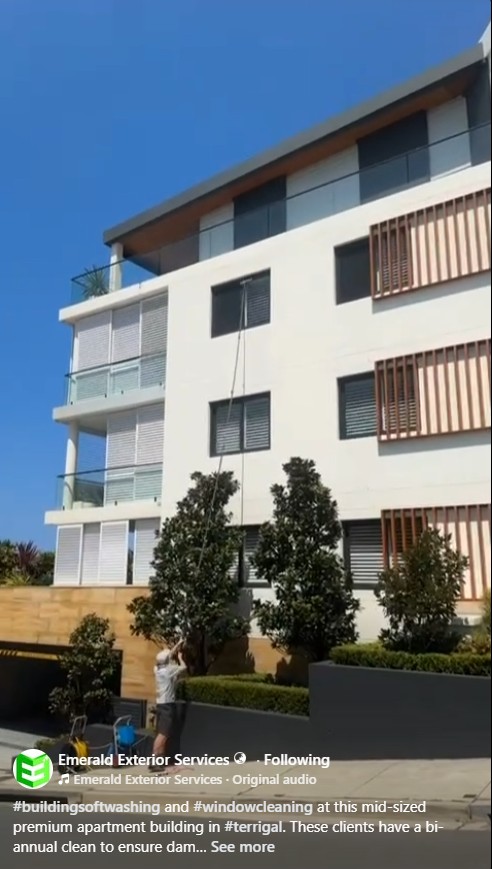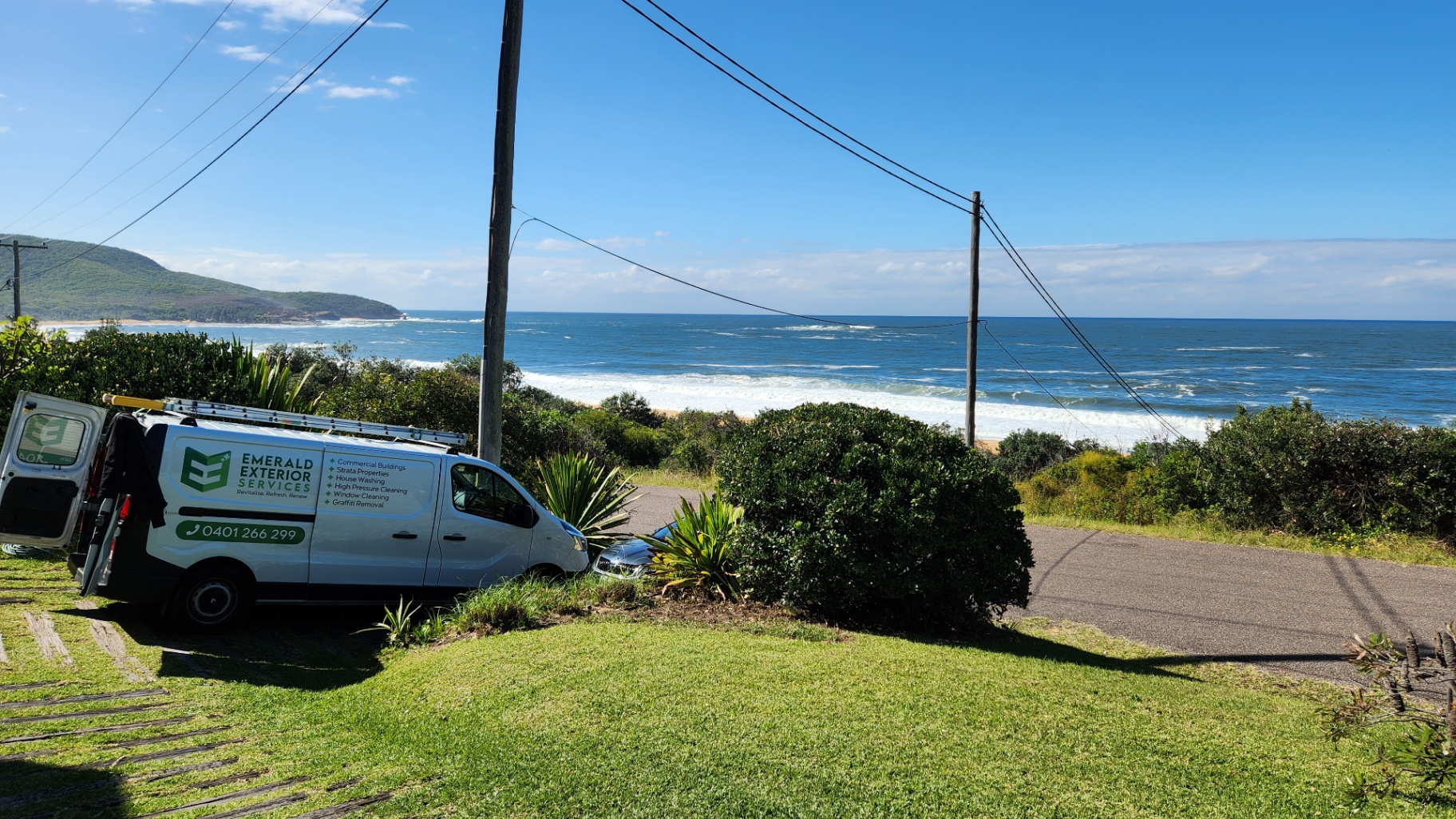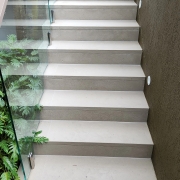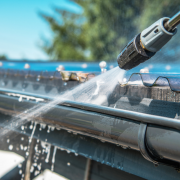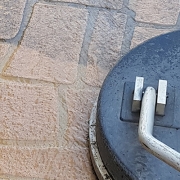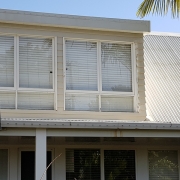The Coastal Homeowner’s Guide to Salt Corrosion: Why Post-Summer Cleans Are Non-Negotiable
Living on the Central Coast comes with undeniable perks: ocean views, fresh sea breezes, and a lifestyle many only dream about. But there’s a hidden cost to this coastal paradise that catches many homeowners off guard: salt corrosion. And if you’ve just sailed through another Central Coast summer, your property has been under siege from salt-laden air, ocean spray, and humidity for months.
The question isn’t whether salt has accumulated on your home’s surfaces: it’s how much damage it’s already doing. Post-summer cleans aren’t just about aesthetics; they’re about protecting your investment from corrosion that spreads rapidly once protective barriers are compromised.
Why Summer Exposure Creates the Perfect Storm
Summer on the Central Coast is beautiful, but it’s also the most aggressive season for salt accumulation. The combination of increased humidity, regular ocean spray from summer winds, and salt-heavy air creates conditions that accelerate corrosion on virtually every exterior surface of your property.
Salt doesn’t just sit harmlessly on your windows and walls. Once it penetrates protective coatings or settles into porous materials, it begins a chemical process that degrades metal, concrete, timber, and even modern composite materials. The longer salt deposits remain, the deeper they penetrate: and the more expensive the repairs become.
What makes post-summer particularly critical is that salt damage often progresses undetected. By the time you notice rust stains, pitting on metal fixtures, or deterioration of painted surfaces, the corrosion has likely spread to areas you can’t see: behind cladding, inside window tracks, through concrete, and along structural components.

The Vulnerable Spots Salt Targets First
Not all areas of your coastal property face equal risk. Salt corrosion zeroes in on specific components that are either constantly exposed or particularly susceptible to chemical breakdown:
Windows and Glass Surfaces
Your windows cop a battering from salt spray, especially during summer storms and high winds. Salt accumulates in tracks, corrodes metal frames, and creates a filmy residue on glass that reduces visibility and curb appeal. Left unchecked, salt deteriorates seals and caulking, allowing moisture infiltration that damages interior walls and window structures.
Metal Fixtures and Railings
Balustrades, outdoor lighting, garage doors, fasteners, and decorative metalwork deteriorate rapidly in coastal environments. Even stainless steel: often marketed as “marine grade”: can suffer from pitting and surface corrosion when salt deposits aren’t regularly removed.
Rendered and Painted Surfaces
Your home’s exterior cladding, whether it’s render, weatherboard, or brick, absorbs salt through microscopic pores. Once inside, salt draws moisture and accelerates the breakdown of paint, render, and protective coatings. The result? Cracking, flaking, and discolouration that compromises both appearance and weather protection.
Concrete Driveways and Pathways
Salt penetrates concrete surfaces and reacts with internal steel reinforcement, causing rust that expands and creates spalling: those unsightly chunks and cracks that only worsen with time.
Outdoor Plumbing and Irrigation Systems
Taps, hose connections, and irrigation fittings face constant exposure to salt air. Corrosion here leads to leaks, water waste, and costly replacements if neglected beyond summer.
Why Waiting Until Winter Is a Costly Mistake
Here’s the reality: salt doesn’t take a break when summer ends. In fact, cooler months can accelerate certain types of corrosion as moisture lingers on surfaces rather than evaporating quickly. By the time you notice visible damage in winter, the corrosion has had months to establish itself in areas you can’t easily access or repair.
Post-summer cleaning removes accumulated salt deposits before they transition into your property’s cooler, damper months. It’s preventative maintenance that stops corrosion in its tracks rather than attempting damage control later.
At Emerald Exterior Services, we’ve seen firsthand what happens when Central Coast homeowners delay their post-summer cleans. Small rust spots become structural concerns. Window frames that could’ve been preserved need replacing. Driveways that needed a clean require resurfacing. The financial difference between prevention and repair is often measured in thousands of dollars.
The Professional Cleaning Solutions That Actually Work
Not all cleaning methods are created equal, especially when dealing with salt corrosion on coastal properties. The wrong approach can actually cause more harm than good: high-pressure blasting can force salt deeper into porous surfaces, damage protective coatings, and compromise seals.
Soft Washing for Delicate Surfaces
Soft washing is a gentle yet potent cleaning technique that uses low-pressure water combined with eco-friendly cleaning solutions to dissolve and remove salt deposits, organic growth, and grime without damaging your property’s surfaces.
This method is particularly effective on rendered walls, painted timber, roof tiles, and any surface where high pressure could cause damage. The cleaning solutions we use (including sodium hypochlorite where appropriate) don’t just lift grime: they kill the mould, algae, and lichen at the source by treating the bacteria they grow from. So, the clean itself is the protection, helping keep organic growth away for longer and reducing the likelihood of moisture being held against your surfaces.
With over 12 years of experience servicing Central Coast properties, we’ve refined our soft washing techniques to address the unique challenges coastal homeowners face. Our eco-friendly approach protects your family, your pets, and the surrounding environment whilst delivering exceptional results.

House Washing That Goes Beyond Surface Level
Professional house washing addresses every exterior surface systematically. We don’t just rinse away visible dirt: we target salt accumulation in eaves, under soffits, around fixtures, and in all the nooks where corrosion takes hold.
Our process includes pre-treatment of heavily affected areas, thorough cleaning using appropriate pressure levels for each surface type, and a final rinse that ensures no cleaning residue or salt remains. The result is a home that’s not just cleaner, but genuinely protected heading into the cooler months.
Window Cleaning That Restores Clarity and Protection
Windows require dedicated attention because they’re constantly exposed to salt spray and are often the first place homeowners notice deterioration. Our window cleaning service goes beyond glass: we clean frames, tracks, and seals where salt accumulates and causes the most damage.
Using purified water systems and gentle cleaning methods, we remove salt deposits without scratching glass or damaging protective coatings.
High-Pressure Cleaning for Hardscapes
For concrete driveways, pathways, and tile surfaces, high-pressure cleaning effectively removes embedded salt and grime that soft washing alone can’t address. Our technicians adjust pressure levels based on surface type and condition, ensuring thorough cleaning without causing damage.
Beyond Cleaning: Long-Term Salt Protection Strategies
Whilst post-summer cleaning is non-negotiable, consistency is what creates a long-term defence against salt corrosion. The good news is the protection largely comes from the clean itself: by removing mould, algae, lichen, cobwebs, dirt, and grime with the right cleaning solution (including sodium hypochlorite where appropriate), we kill the bacteria these growths feed on. That means your surfaces stay cleaner for longer, and you reduce the moisture-holding buildup that accelerates deterioration.
Regular Maintenance Schedules
The most successful coastal property owners don’t wait for visible problems: they schedule regular cleaning services throughout the year. Quarterly and bi-annual soft washing and bi-annual to annual comprehensive cleaning keeps salt and organic growth from establishing destructive footholds.
Drainage and Water Management
Ensuring gutters, downpipes, and drainage systems function properly prevents water: and dissolved salt: from pooling on surfaces where it accelerates corrosion. Regular gutter cleaning and maintenance should be part of your post-summer routine.
Material Upgrades
When repairs or replacements become necessary, choosing salt-resistant materials makes future maintenance easier. Marine-grade stainless steel, composite materials, and modern sealants designed for coastal applications significantly reduce corrosion rates.

Why Professional Service Matters for Coastal Properties
You might be tempted to tackle post-summer cleaning yourself with a hired pressure washer and some elbow grease. But here’s what 12+ years of experience has taught us: DIY cleaning on coastal properties often creates more problems than it solves.
Without proper training, it’s easy to use excessive pressure that damages surfaces, apply incorrect cleaning solutions that react poorly with salt deposits, or miss critical areas where corrosion is taking hold. Professional technicians understand how salt behaves on different materials, which cleaning methods work best for each surface, and how to identify early warning signs of serious corrosion.
We’re fully licensed, insured, and equipped with commercial-grade equipment that delivers superior results safely. Our team follows strict safety protocols and environmental compliance standards: something that’s particularly important when working with cleaning solutions near waterways and native vegetation.
For strata properties and apartment complexes, professional service becomes even more critical. Multi-unit buildings present unique challenges with shared spaces, multiple levels, and varied surface materials. Our experience with commercial and strata cleaning means we can coordinate comprehensive cleaning that minimises disruption to residents whilst addressing everyone’s shared investment in the property.
The Cost of Inaction vs. The Investment in Prevention
Every post-summer clean you skip allows salt corrosion to progress further into your property’s structure. What starts as a simple cleaning job in year one becomes surface repairs in year two, component replacement in year three, and potential structural remediation by year five.
We’ve worked on Central Coast properties where delayed maintenance led to window frame replacements costing tens of thousands of dollars: all because regular cleaning and minor repairs were postponed year after year. The same pattern plays out with rendered walls, metal fixtures, concrete surfaces, and outdoor structures.
The mathematics of prevention versus repair strongly favour regular professional cleaning. A comprehensive post-summer clean represents a tiny fraction of what you’d spend addressing advanced corrosion damage.
Your Post-Summer Action Plan
As we transition from summer into the cooler months, now is the ideal time to schedule your property’s post-summer clean. The weather is typically more stable, making it easier to schedule work, and you’re addressing salt accumulation before the damper winter months lock it into your surfaces.
At Emerald Exterior Services, we’ve spent over a decade protecting Central Coast properties from salt corrosion. We understand the specific challenges our coastal environment presents, and we’ve developed cleaning methods and maintenance strategies that genuinely work for local conditions.
Whether you own a beachfront home, a residential property a few kilometres inland, or manage a strata complex, our team provides tailored cleaning solutions that protect your investment and keep your property looking pristine.
Don’t let another season of salt accumulation compromise your property’s integrity and value. Contact Emerald Exterior Services today at 0401 266 299 or visit emeraldexteriorservices.com.au to schedule your post-summer clean. Your coastal property deserves professional care that goes beyond surface cleaning( it deserves protection that lasts.)


 EmeraldExteriorServices
EmeraldExteriorServices
